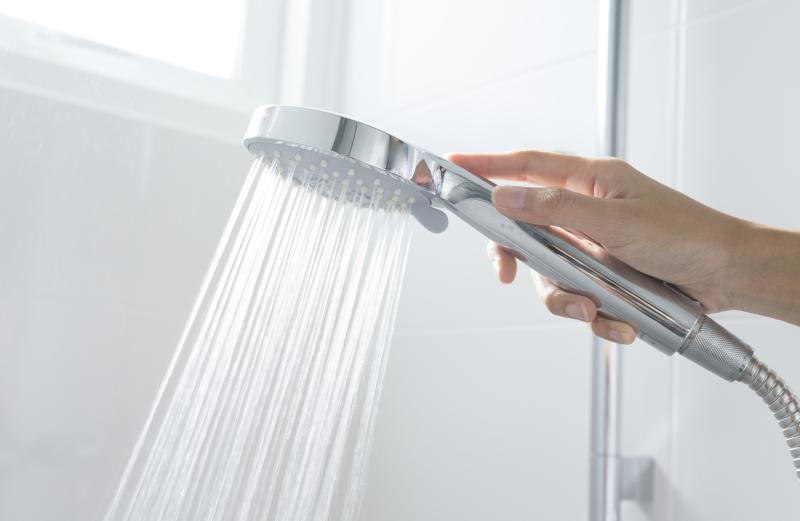Tips for using less water
On average, Swiss citizens use 50 litres of warm water each per day. Water is often heated with energy from fossil fuels and makes up almost 15% of our domestic energy consumption. We have a few simple tips for using less warm water, and thus energy.
Tip 1: take showers instead of baths
You need 150 litres of hot water to fill a bathtub. This is substantially more than the amount of water used by a regular shower – a five-minute shower uses about 50 litres. But if you like lengthy showers – and depending on the water temperature and pressure – you could end up using about the same amount of water as a bath, if not more.
Extra tip: keep your showers warm but not hot
Having cold or warm showers, not hot ones, is said to be good for your health. Plus, it cuts back on the amount of hot water you use. Even going five degrees cooler uses 10% less energy.
Tip 2: use water-saving appliances
A water-saving shower head (at least energy-efficiency class B) or water-saving appliances with a flow of less than six litres a minute can reduce your water usage by up to 50% – and people generally also find the water pressure more pleasant. Water-saving add-ons for your shower head and flow regulators for your kitchen or bathroom taps are widely available. Sometimes all you need to do is swap the filter insert, which is easy to do yourself. As various sizes are available, it’s easiest to take your shower head or flow regulator with you when you go to the hardware store so you can compare them with the products there or ask the salespeople for advice.
Tip 3: use a dishwasher
Do you have a dishwasher? If so, avoid washing up by hand if possible. That’s because a fully loaded dishwasher consumes less water than thorough washing up in the sink. There’s no need to pre-rinse lightly soiled dishes, either: the dishwasher will usually take care of all that for you.
Tip 4: only use the water you need
Unnecessary water can quickly flow out of the pipes and down the plughole – and if we’re talking about hot water, there are lots of opportunities to make savings.
- Turn off the taps when you’re brushing your teeth or lathering up
- When cooking, measure out the precise amount of water you need
- Use the water-saving button when flushing the toilet – it only uses three litres of water, instead of six
- Contact us or your property manager if you have a dripping tap or your toilet won’t stop running
- Plants prefer rainwater – so collect rainwater and use it to water them
Extra tip: collecting water pays off!
Collect the cold water that runs while you’re waiting for the hot water to come through. You can then use it in your kettle or watering can and prevent it from going to waste.
Tip 5: clean with cold water
Cleaning agents don’t all have to be used with hot water. In fact, some chemical cleaners can actually release noxious fumes if you use them with hot water. Cleaners for sanitary facilities, in particular, should only be used with cold water, or lukewarm water at a push. Make sure to read the manufacturer’s instructions on the packaging.
And, incidentally, if you use microfibre cloths, the mechanical cleaning action of their fibres means that you’ll need far less in the way of water and cleaning products.
